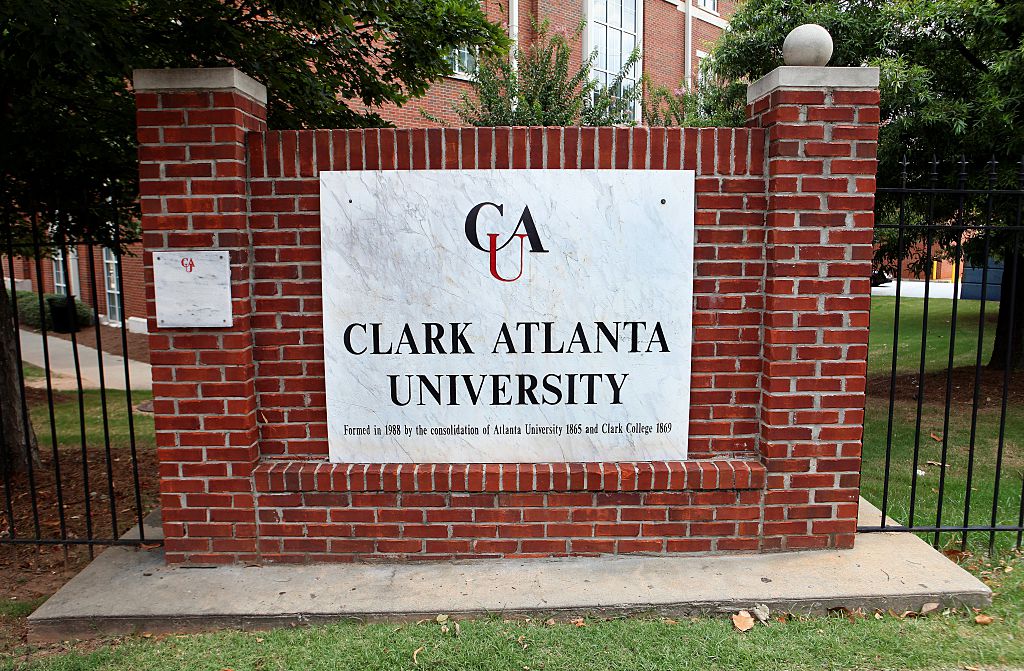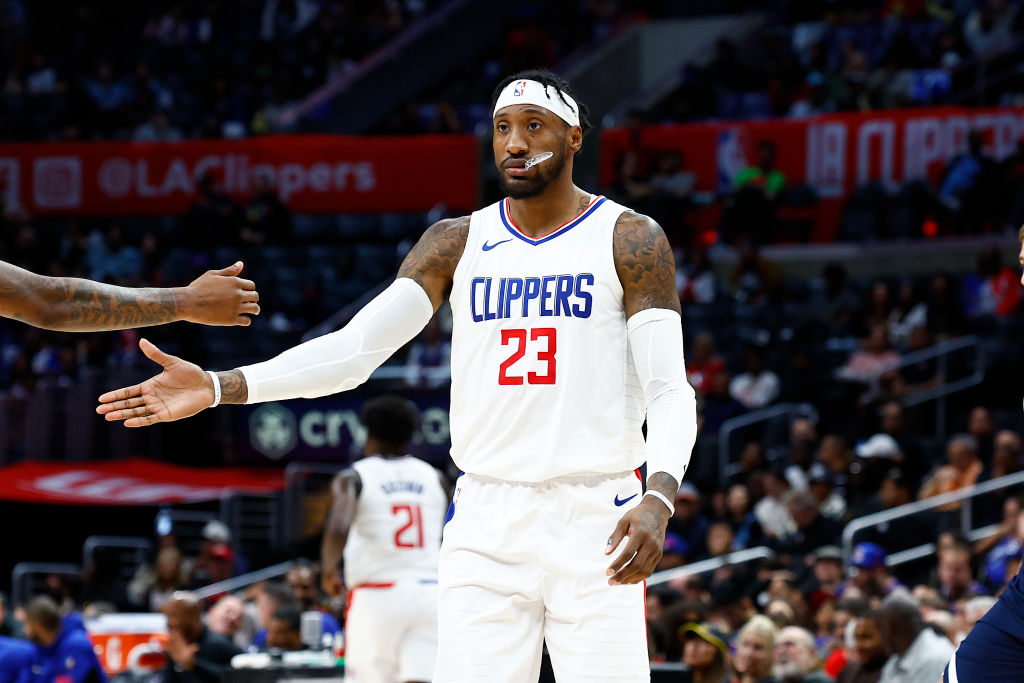Latest HBCU Homecoming Shooting Is Clark Atlanta Gun Violence
Clark Atlanta Shooting Is 3rd Straight Week Of Campus Gun Violence During HBCU Homecomings

Source: Raymond Boyd / Getty
A robbery and shooting on the campus of a historically Black college in Atlanta was the scene of the latest instance in a series of violence involving guns during homecoming festivities this month.
On Friday night, an 18-year-old man suffered non-life-threatening injuries after being shot and robbed on the campus of Clark Atlanta University. While details are scarce, police say at least one gunman demanded the belongings of the unidentified victim who was not a student. When the confrontation turned physical, the gunman opened fire and fled with the victim’s belongings. As of Tuesday afternoon, there were no reports of a suspect being identified, let alone arrested and charged
Campus police told the Atlanta Journal-Constitution that the shooting was not associated with Clark Atlanta’s homecoming festivities, which began earlier in the week and culminated with Saturday night’s football game against Central State University. However, the shooting still came as Clark Atlanta’s homecoming week was underway, making it the third straight week such gun violence has erupted on an HBCU campus.
The shooting at Clark Atlanta caps off a bloody October that was preceded by other notable instances of violence on HBCU campuses as Black college advocates continue to call for increased federal funding to ramp up security.
Just last week, Jackson State University student Jaylen Burns, 21, was reportedly attempting to break up a fight when he was shot to death on the campus in Mississippi’s capital city. Burns’ shooting on Oct. 15 came hours after gunfire broke out on campus leaving two people with non-life-threatening injuries. Jackson State said those shooting victims “are not affiliated with” the school and expressed gratitude “that no students were involved or harmed.”
Notably, the Jackson State shootings came during the tail-end of the HBCU’s homecoming festivities.
On Wednesday, a 19-year-old suspect was arrested and charged with murder.
The shootings in Jackson followed a separate pair of shootings on the campus of Bowie State University in Prince George’s County, Maryland. At least two unidentified men, both 19, were left with gunshot wounds on the night of Oct. 9 near Bowie State’s Center for Business and Graduate Studies during homecoming festivities.
About an hour north and four days earlier, five people – including four students – were injured in a mass shooting on the campus of Morgan State University in Baltimore as the school’s week of homecoming events was beginning. The gun violence prompted Morgan State to cancel the rest of its homecoming festivities for the first time in school history.
One person was arrested for the mass shooting and authorities have been seeking another.
In a display of HBCU solidarity, Bowie State invited Morgan State students to attend its homecoming game and announced it would be enhancing campus security. But the double shooting still happened under heightened awareness.
The month of shootings on HBCU campuses is the latest instance of a Black college being linked to the threat of gun violence.
Back in August, a white supremacist drove onto the campus of Edward Waters University in Jacksonville, Florida, and was recorded by students wearing tactical gear before campus security removed him from school property. After leaving, Ryan Palmeter opened fire at a nearby Dollar General store and killed three Black people before turning the gun on himself on Aug. 26.
The unfortunate episode in Florida prompted Edward Waters University to decry a “lack of resources” at historically Black colleges and called on the Biden Administration to “do even more to secure our HBCU schools who are under deliberate and vicious attack.”
Also in August, a vicious melee broke out near Howard University’s residence hall, prompting the HBCU to install more than 1,000 cameras across campus and card readers to control access to certain campus buildings. Howard also bolstered its security with an armed officer stationed in front of residence buildings and supplied students with an emergency device to call for help.
The underfunding of HBCUs, particularly as it relates to securing campuses, has been well-documented. Following the mass shooting at Morgan State, it briefly flirted with the idea of building a wall around its campus that has traditionally been open to the public.
Bowie State, Jackson State and Morgan State were all the targets of a series of bomb threats against dozens of HBCUs across the country just last year. Clark Atlanta was also affected by them when neighboring Spelman College received bomb threats around the same time.
Lodriguez V. Murray, UNCF’s senior vice president for public policy and government affairs, has said that Congress hasn’t matched the urgency shown by the situation at hand.
“All year long, we have asked Congress to protect HBCUs, and now is the time to pass the Homeland Security appropriations bill with language that directs the Federal Emergency Management Administration (FEMA) to provide $100 million for HBCUs (annually) via the non-profit grants’ security program,” Murray said in a statement. “This program must administer the funds directly to HBCUs, not by the state governments. This will help HBCUs to be protected against threats by increasing security, developing plans on how to respond beyond simply calling the police, heighten the use of technology to monitor campus entry points, and make our environments the safe haven for learning they should be for the sake—and mental health and security—of our students.”
Statistics also show that federal funding of HBCUs has increased every year under Biden’s presidency.
A study from May found that HBCUs receive 178 times less foundation funding than Ivy League schools – $5.5 billion to $45 million in 2019, when the most recent statistics were available.
“The inequities are embedded and sanctioned by state governments, the federal government and by private industry,” N. Joyce Payne, founder of the Thurgood Marshall College Fund, told Forbes last year. “They say to the white schools, you can drive a Bentley, but the Black schools are told they can’t get a car at all.”
SEE ALSO:
‘Scary’ Video Shows Massive Flooding In HBCU Dorm Displacing Students
Shirts For Sale Promote The University Of Colorado’s ‘HBCU State Of Mind’
















